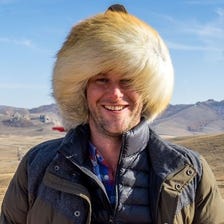Uluru may be the main attraction for many visitors to the Red Centre. But there’s much more to discover in the vibrant desert landscapes of Central Australia. Take a road trip along the Red Centre Way and you'll find plenty of attractions.
At Karrke Aboriginal Cultural Experience near Kings Canyon, Natasha Abbott clasps two wooden clapping sticks in her hands and demonstrates how they’re played. She warns that the tone will be dull if you grasp them too tightly but, hold them gently, and they’ll hit just the right note.
“I’ve learnt this from my grandmothers, how they’ve held them and the way they tap them together in a rhythm,” Natasha says. “It makes that beautiful tone that is connecting with the earth, and it’s very special and emotional.”
Natasha is talking about making music, but she could also be referring to the journey along the Red Centre Way. It’s when you start to relax that the rhythm of the trip takes on a beauty to match the melody of the country here. Starting in Alice Springs and visiting Uluru, Kings Canyon, and the West MacDonnell Ranges, the 1,135km drive is best done with a minimum of 6 days – but give yourself even longer and you won’t regret it.
Alice Springs to Uluṟu (446km)
The journey begins in Alice Springs and then out onto the open road, where the red dirt stretches across ancient lands to meet the bright Central Australian sky. On the drive to Uluru, take a break at the Erldunda Roadhouse, which is home to more than 30 cheeky emus, while a bit further down the road is the viewing area for Mount Conner (also known a ‘Fool-uru’ because so many people mistake it for the more famous landmark).
Once you reach Uluṟu, you’ll start to measure time not in hours but in sunlight. Start the day with sunrise as the first morning rays illuminate the rock, then get up close on some of the walks around the base to see how the shadows create shapes amongst the textures of the sandstone. Sunset brings new colour to Uluru and, as night falls, the fantastical Field of Light art installation appears to grow its vibrant bulbs amongst the spinifex.
It’s easy to spend a few days around Uluru, seeing it from different perspectives, joining activities like a dot-painting workshop with Maruku Arts, and taking a side trip to Kata Tjuṯa, where you’ll walk amongst the soaring ochre domes that have shared their stories for thousands of years. Guided ranger talks and other tours in the national park will offer you an insight into the Aṉangu people and how their cultural concept of Tjukurpa is intertwined with the stunning natural environment.
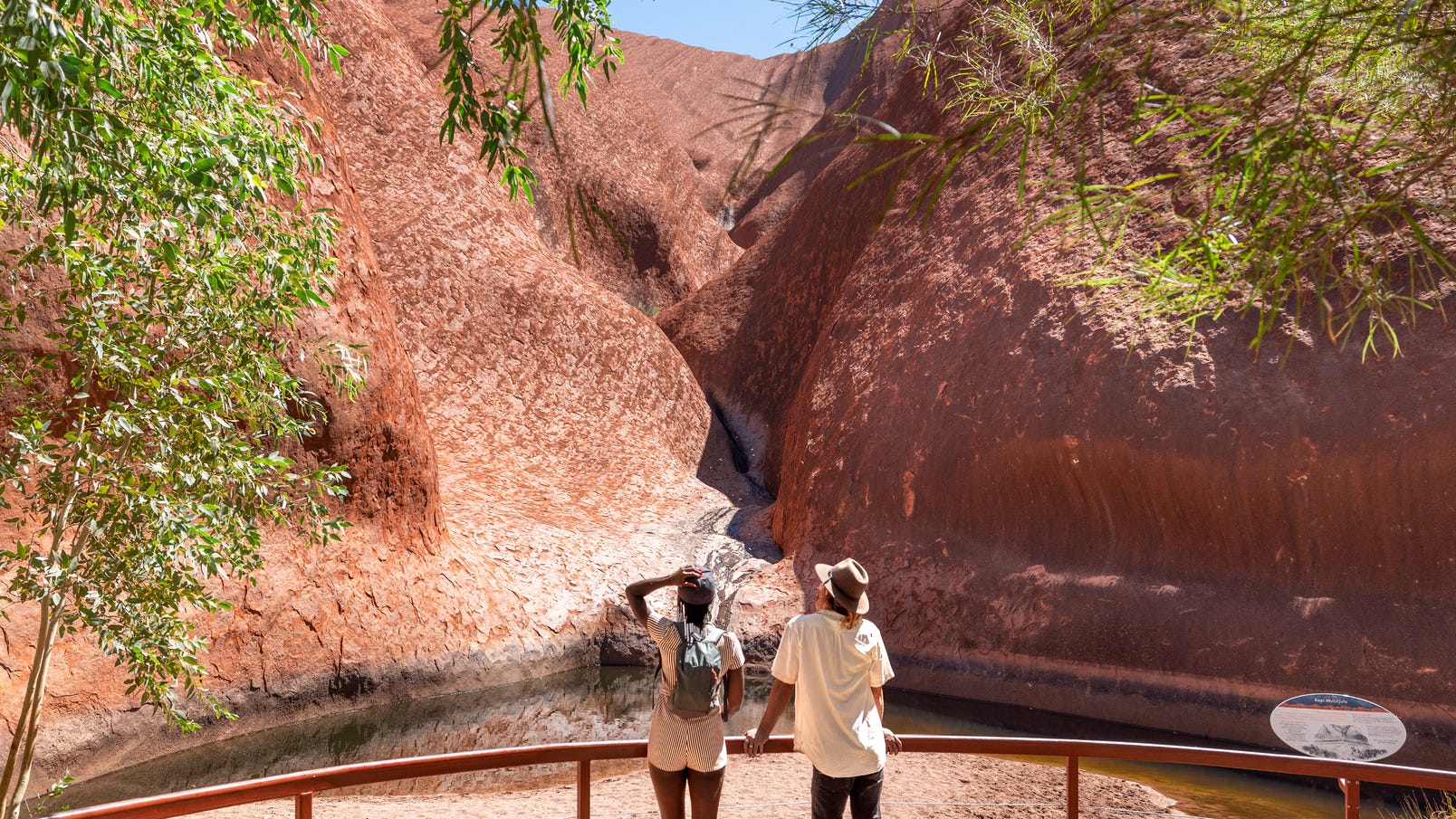
Uluru to Kings Canyon (300km)
While Uluru is hard to miss, many of the Red Centre’s treasures are initially hidden from view, revealing themselves only as you dive deeper into the journey. 300km away, you’ll find Kings Canyon, an epic landscape of sheer rock cliffs and sculpted orange rock formations.
Before you get there, stop at Karrke Aboriginal Cultural Experience for an excellent overview of the important aspects of the local culture, with demonstrations of aspects including native foods, art, and weapons. If you’re still hungry after a witchetty grub, Kings Creek Station across the road is a great place for lunch, with camel burgers as the specialty!
To see Kings Canyon properly, it’s best to hike one of the designated trails. The Rim Walk is the most popular option, with sweeping views from the 6km loop along the top of the towering cliffs. To avoid any steep ascents, the Kings Creek Walk is a flat accessible alternative through the shade of the trees growing in the riverbed.
For sunset, Discovery Kings Canyon has a viewing platform where you can toast the end of the day as the surrounding range slowly changes colour. Don't miss viewing the Light Towers at Sunset. After dark, galaxies of stars bring the sky to life, and there’s no better way to admire them than with the open-air dinner experience, Under a Desert Moon, with five courses and matching wines.
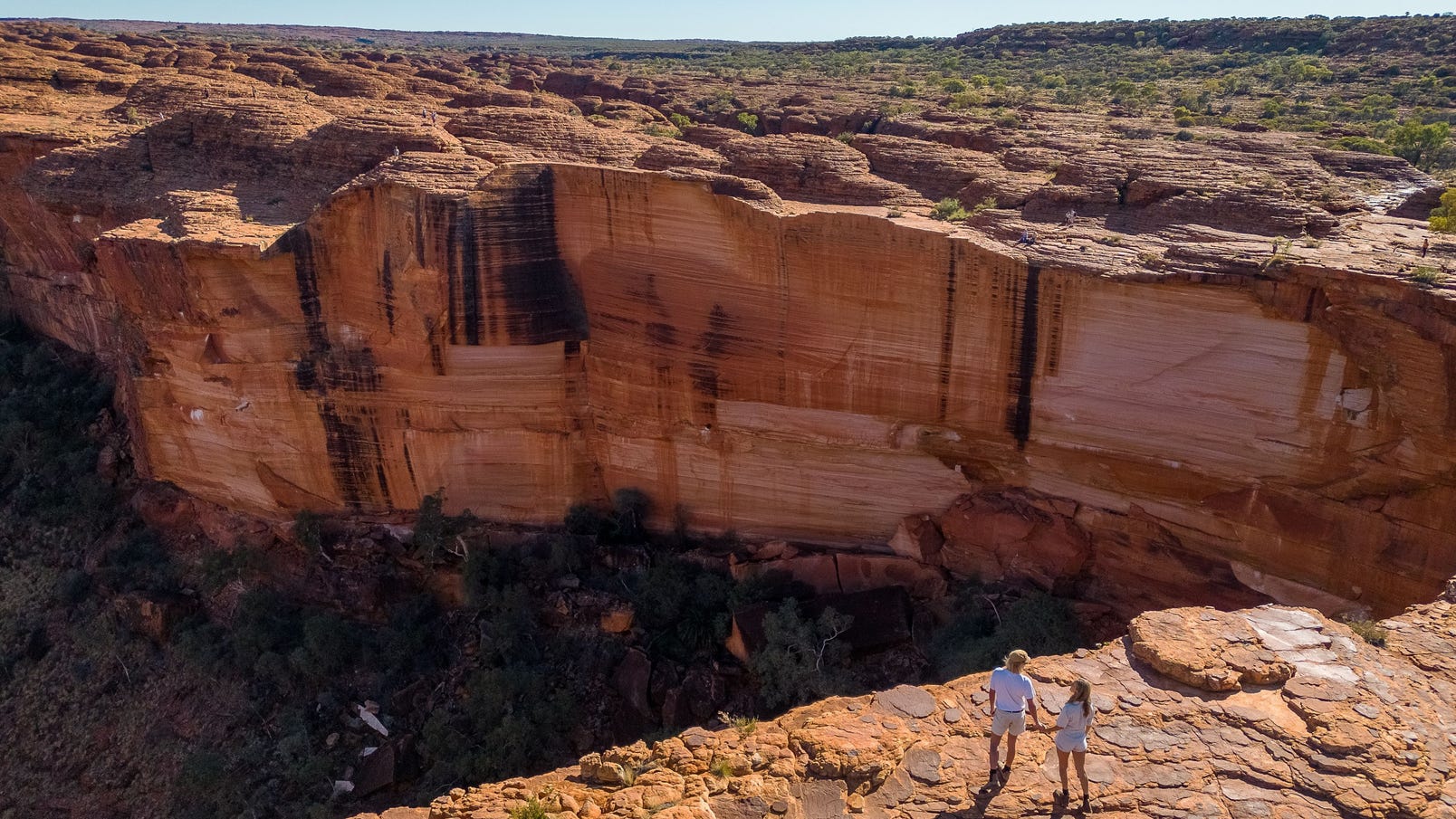
Kings Canyon to West MacDonnell Ranges (234km)
The drive from Kings Canyon into the West MacDonnell Ranges takes you along the Mereenie Loop, an unsealed road that’s recommended only for 4WD vehicles. But after a couple of hours of remote dusty driving, perhaps past kangaroos and wild horses, you’ll reach a natural playground of waterholes and rocky hiking trails.
The West MacDonnell Ranges stretch for 161km, with plenty of options for things to do. Visit Ormiston Gorge, Redbank Gorge, or Ellery Creek Big Hole for a swim in refreshing waters surrounded by dramatic ochre bluffs. There are various walks at popular spots like Simpsons Gap and Standley Chasm, or you can try a leg of the Larapinta Trail, the 223km-long hike that covers the entire length of the ranges.
There’s too much to see in the West Macs to just pop in on the drive from Kings Canyon to Alice Springs, so it’s worth spending the night at the accommodation at Glen Helen. The gorge here at Glen Helen is dazzling itself, with an imposing sandstone wall that opens up to make way for the Finke River, but it’s also a convenient base to explore other sights nearby.
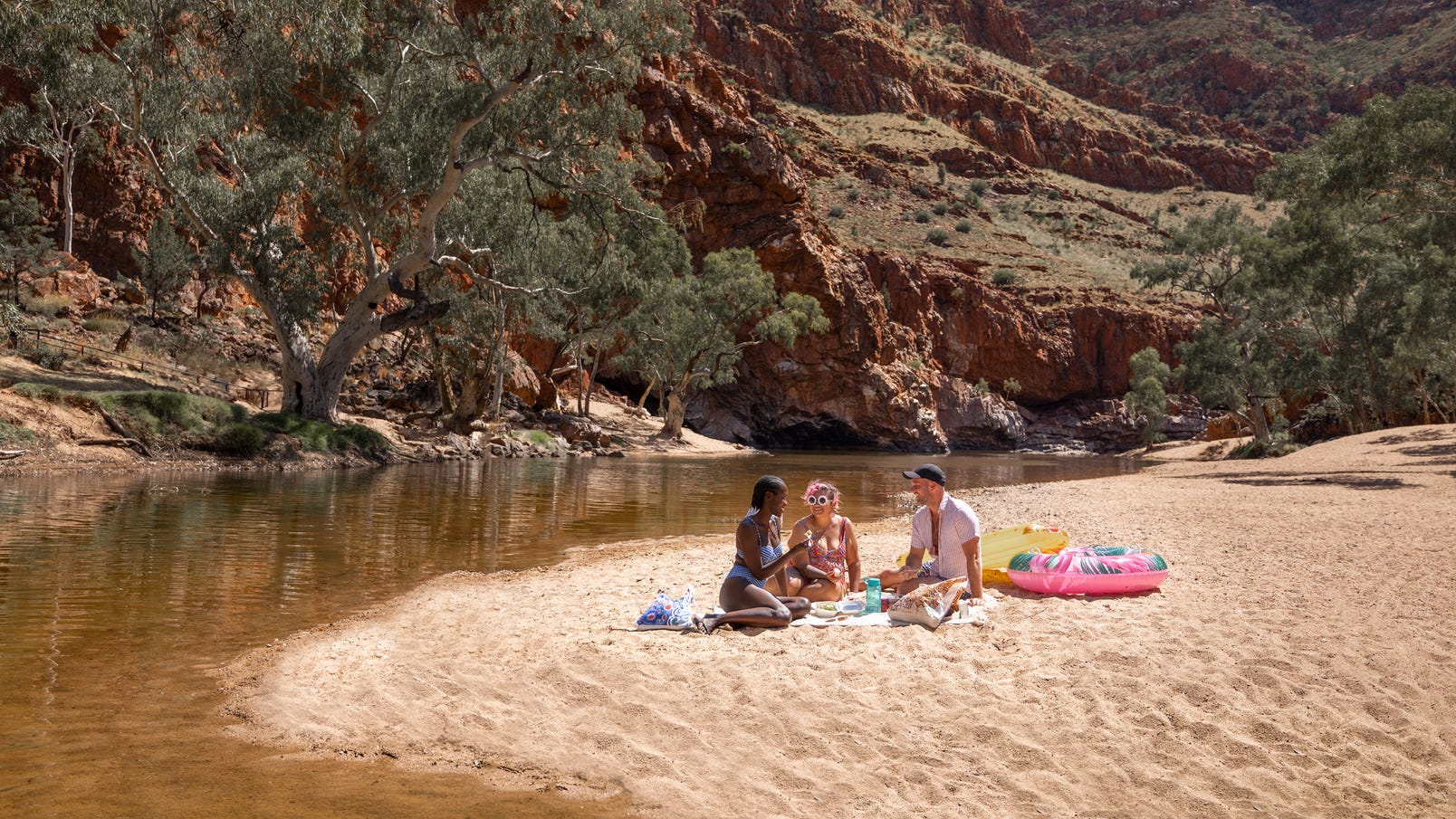
West MacDonnell Ranges to Alice Springs (132km)
The drive back to Alice Springs won’t take long, which leaves plenty of time to explore the town. Start with the historic Alice Springs Telegraph Station (which is the reason Europeans first settled here about 150 years ago) before heading to the top of Anzac Hill for a stunning view across the modern heart of the city today. The Araluen Cultural Precinct hosts interesting museums and art galleries, and at sunset you can visit the Kangaroo Sanctuary to help feed the orphaned and injured young animals that are preparing to be released to the wild.
Alice Springs, along with Uluru, Kings Canyon, and the West MacDonnell Ranges, are each incredible destinations in their own right. But the road trip along the Red Centre Way is about more than just landmarks. By the time you’ve travelled all 1,135km, you’ll have found your rhythm, and hopefully be more in tune with this special part of Australia.
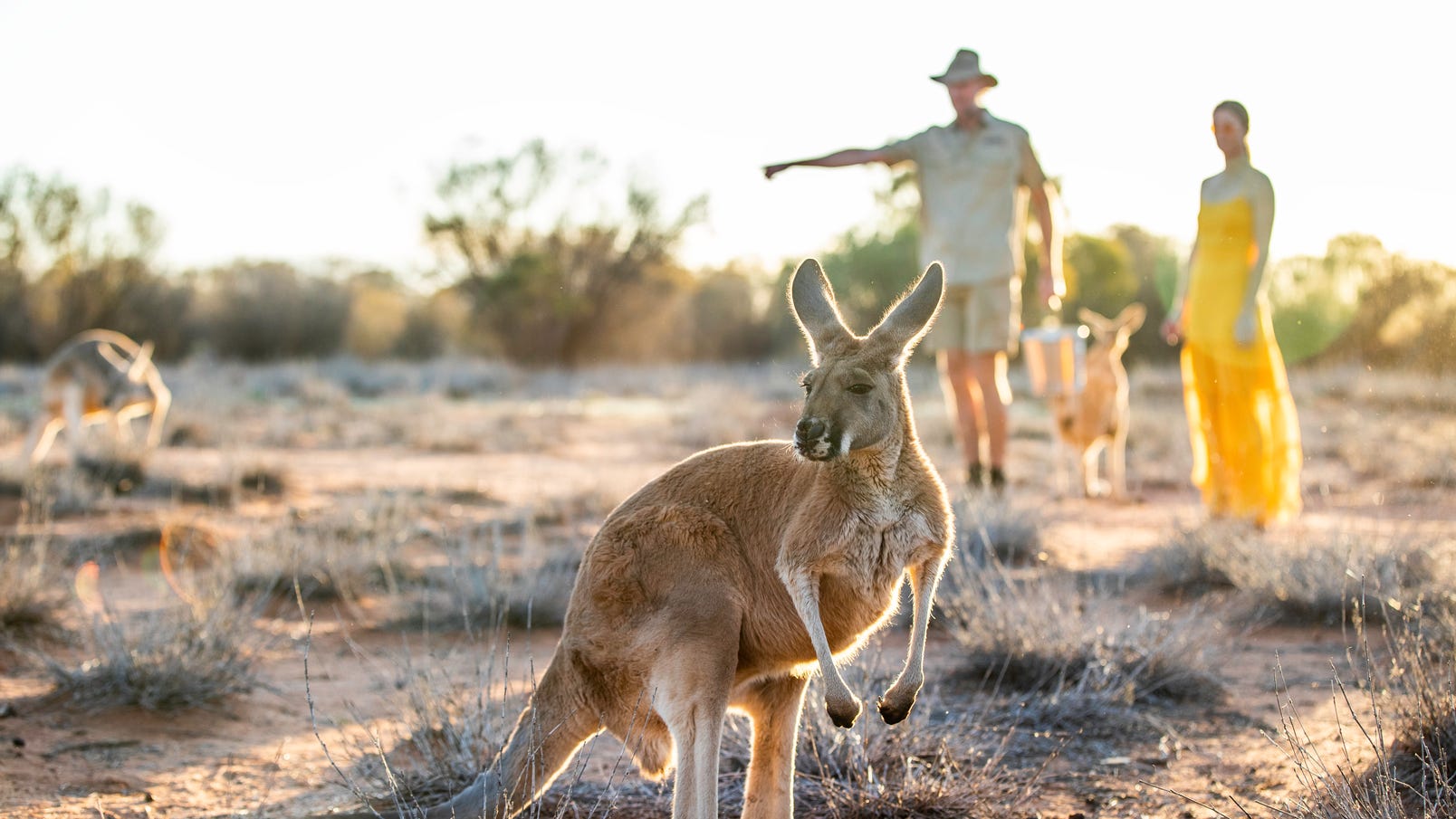
Looking for inspiration? Check out everything there is to see and do along the Red Centre Way.
Keep exploring
More articles you might like

